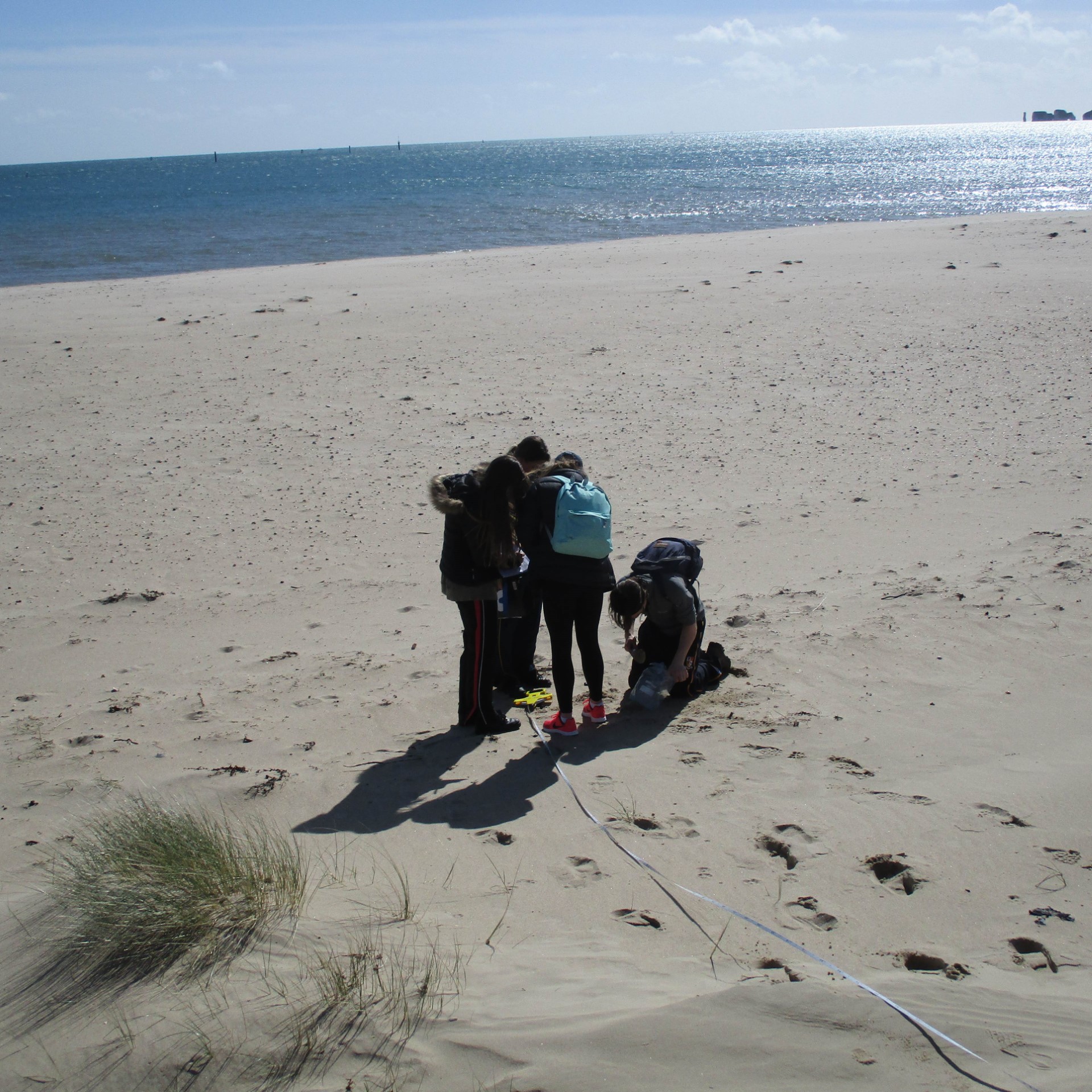Geography Field Trip
31 March 2017

Following the introduction of independent investigative projects as part of the new A Level Geography specification, 42 Lower Sixth Geographers and six members of staff set off for Dorset in search of sand, sea and social inequality on Saturday 18 March. Our aim was multi-faceted; to immerse pupils in geography fieldwork, ranging from data collection and recording, to walking through sand dunes and seeing the wonderful coastal landforms of Lulworth Cove and Durdle Door, as well as looking at urban regeneration in the town of Weymouth.
We based ourselves at the PGL Centre at Osmington Bay, near Weymouth for our three day fieldwork expedition and were lucky enough to enjoy some beautiful views over Portland Bay. On Sunday 19 March we spent the morning at Studland Bay, measuring and assessing the sand dunes and feeling glad that the cool temperatures meant the naturist beach wasn’t yet in use!
Sunday afternoon saw a move to Lulworth Cove. One of the Lulworth Rangers introduced the pupils to the geology of the bay, explaining its growth and development and the creation and future prospects for some of the amazing landforms found there, including Stair Hole and Lulworth Cove itself. Pupils then moved on to Durdle Door, seeing one of the best examples of a coastal arch in the UK, before conducting practical fieldwork to assess beach profiles and pebble distribution in relation to the effects of longshore drift.
On Monday morning we swapped walking boots for trainers and ventured into Weymouth town in search of evidence of regeneration of the area following the 2012 Olympic sailing which was held there. Pupils also sought evidence of deprivation and social inequality, exploring the harbour and station areas of the town. Following a busy afternoon of planning, the pupils each chose which area of study they wanted to investigate for their independent project; in turn this dictated where they would visit the following day.
Tuesday morning brought clear skies and sunshine as pupils split to go to different destinations in search of project data. At Studland Bay with my group, were it not for the wind-chill, the clear blue sky, white sand and clear blue sea appeared almost tropical and Stoics did an excellent job of collecting data and observing the area.
The trip was a great geographical experience and everyone came back having been exposed to the beauty of the Dorset coast. All they need to do now is write a big project (worth 20% of their A Level) on what they found!
Sarah Murnane, Head of Geography